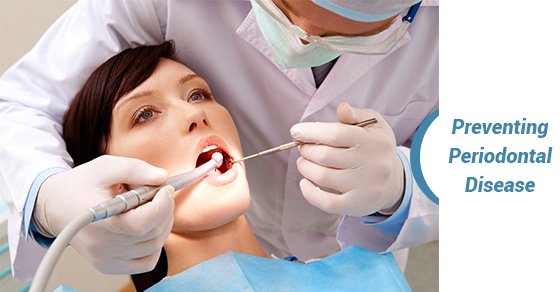When bacteria builds up between your gums and teeth, it can cause gum disease. Periodontal disease is an advanced form of gum disease that you want to avoid like the plague that it is. This form of gum disease can cause your teeth to become so damaged that they fall out. Your gums will recede and your supporting bones will deteriorate. Eventually, periodontal disease can lead to heart disease and diabetes if left untreated.
Don’t fret; periodontal disease can be prevented! By adding these simple steps to your daily routine, you can keep this form of severe gum disease away.
Brush everything:
You are already brushing your teeth twice a day – or at least we hope you are. Now you need to add your tongue and cheeks to the mix. Bacteria can form on your tongue and cheeks, so be sure to brush them too. You don’t have to brush so hard that it hurts, but good solid movement is key to bacteria removal from those areas.
Floss properly:
At least once a day, you should be flossing. If you do not the proper technique for really getting all the food particles and plaque out from between your teeth and along the gum line, we can show you on your next visit.
Wash your mouth:
Regular use of mouthwash can help stave off periodontal disease because it is great at removing any food particles that brushing and flossing missed. Mouthwash also reduces plaque, so swish with it at least once daily.
Stop smoking forever:
If you’ve never smoked, good for you! That’s one less thing to worry about when it comes to periodontal disease. However if you do smoke, it’s time to quit. Smoking contributes to bad teeth, bad gums and all around bad health.
Eat right::
Stay away from sugary foods and maintain a healthy, balanced diet. People often forget that it’s the food they eat that plays a major role in their dental health.
Schedule cleanings:
Having your teeth professionally cleaned will help keep periodontal disease at bay. It is recommended that you schedule a dental cleaning and check up at least once a year, preferably every six months. If you notice your gums are swollen, red or bleeding, do not wait six months between cleanings. The same goes for loose teeth, chronic bad breath and receding gums.
By improving your oral hygiene and keeping it up, you may never get gum disease. Contact us for more information about periodontal disease and while you’re at it, make an appointment for a cleaning.
